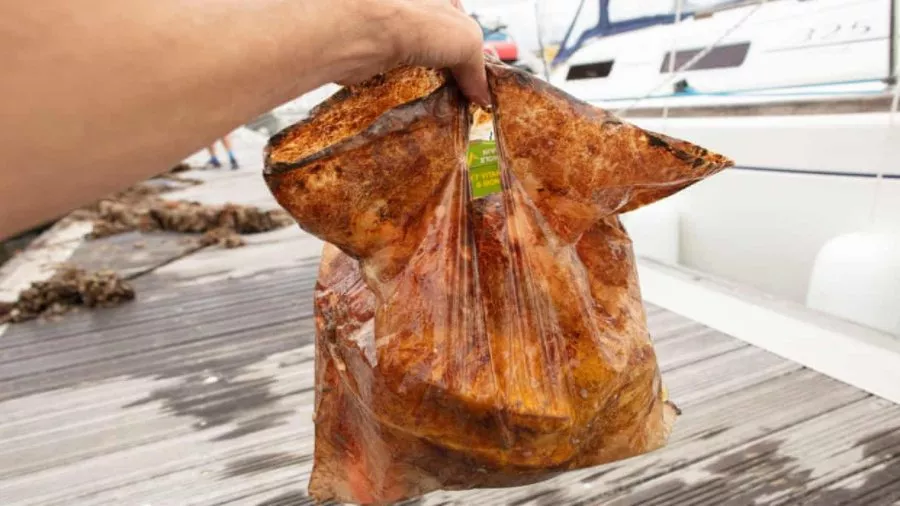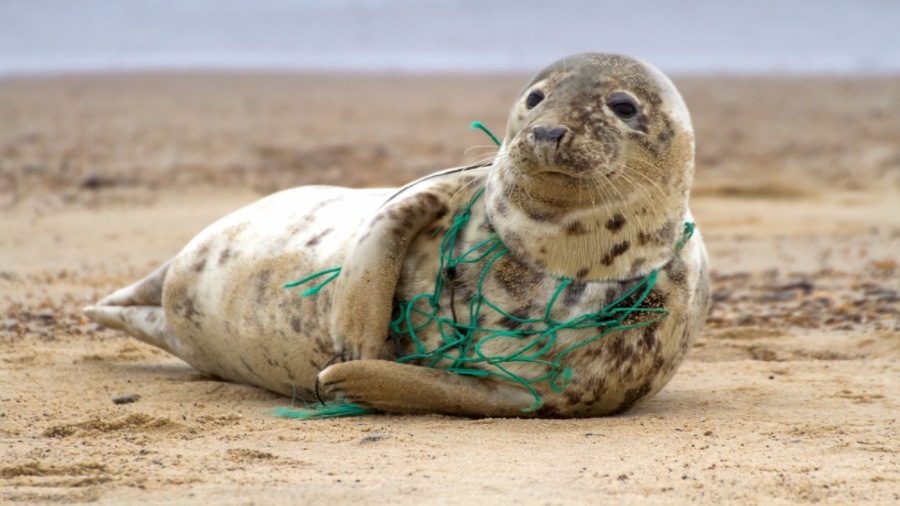Biodegradable Plastic Is As Bad As Conventional Plastic: Research

Biodegradable plastic bags can survive up to 3 years in soil and water, according to a study. Biodegradable bags used in the experiment were able to carry groceries and other heavy items similar to a new plastic bag.
By design, biodegradable plastic should be environmentally friendly and finish itself off after a certain amount of time. However, it remained intact even after continuous exposure to natural elements.
By comparison, compostable bags fared much better in the experiment and were immediately broken.
Biodegradable Plastic Is Not Magic
The study was conducted by the University of Plymouth International Marine Litter Unit. Researchers at the institute used a compostable bag, two types of biodegradable bags and a conventional bag and exposed them to air, dirt and marine water.
The idea was to stimulate the process of breakdown in all these bags and compare the actual rate of degradation. By definition, biodegradable plastic bags should decompose easily when left undisturbed in the environment for several months. However, it didn’t.
The compostable retained its shape but wasn’t able to carry groceries due to the breakdown of its molecules. The conventional plastic bag remained as it is.
This new study has reignited the debate around the effectiveness of “biodegradable plastic.” They obviously cost more and, as this study proves, are still not as effective when compared with conventional plastic.
Difference Between Compostable And Biodegradable Plastic
As I mentioned earlier, Biodegradables are materials that can be decomposed by the action of microbes like Bacteria and Fungi. Biodegradable bags can be of two types – one made from recycled raw materials like jute, hemp etc or another using petrochemicals.
The biodegradable bags made from petrochemicals are known as biodegradable plastics. These are made in such a way that the chemicals present in them will degrade the bag sooner than a plastic bag. The degradation time can range from a few months to several years.
The experiment used both these types of biodegradable bags – Oxo-biodegradable (made from petrochemicals) and plastic bags made from recyclable material. Both of which showed no signs of a faster breakdown and remained intact even after 3 years.
On the other hand, Compostable plastics are made to break down specifically in the presence of oxygen. A compostable bag will decompose into CO2, H20, and other inorganic compounds in around 90 days. The conditions for composting are also defined. The material needs moisture, soil, warmth, and sunlight.
This demonstrates that biodegradable plastics remain so long in the environment as compared to compostable bags.
What Now?

Vegware, the company whose bags were used in the research, affirms that its bags are designed to be easily commercially recycled or composted. The company currently sells around 30 types of biodegradable and compostable plastic products. They also mention the ‘commercially compostable’ characteristic on each of their products.
A plastic bag is not a simple problem to address. This is just the plastic that we see around us, it can be picked up and disposed. However, our oceans are littered with trillions of ultra-small plastic particles that come out of our clothes.
And unlike biodegradable plastics, no pressure is currently present to curb the pollution of microscopic plastics.
Nations in a bid to find a quick fix are banning plastic items from around the world. From banning plastic straws to a one-time use of plastic, the war against this material is in full swing but with sadly no real dent in the situation.
New York recently banned the plastic bag from the city and New Jersey could also be facing the same ban very soon. Nations like China have also stopped taking in recyclable trash from countries like America, prompting them to find alternate solutions.
The effect of plastic pollution is not just environmental, it is social, economic and political. The longer we wait to find a permanent fix, the more severe the problem is going to become.
Recently a sperm whale washed up on the shore of a small Italian town with 50 tons of plastic in its stomach. Big creatures like it are the most vulnerable victims of plastic pollution due to their feeding habits.
However, hope is not yet lost. What will stop plastic pollution is dedicated research like these on the effectiveness of every modern solution. The process of continuous testing and discarding a futile effort will surely result in finding an effective one, real soon.
Also Read: Is This Smog Free Tower The New Hope For A Pollution Free Earth?





